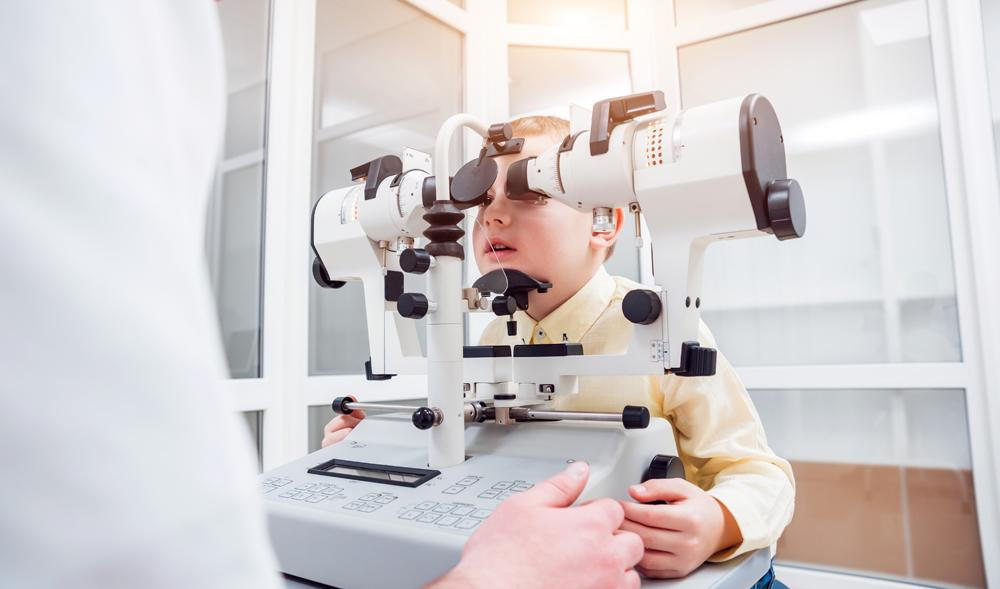High-grade Retina Service Near Me: Leading Eye Care Providers
Recognizing the Different Eye Issues Dealt With by Specialized Eye Care Professionals
In the realm of eye treatment, specialized specialists play a crucial function in diagnosing and treating a large array of eye conditions. As we embark on this expedition of the various eye conditions addressed by specialized eye treatment specialists, it comes to be apparent that the elaborate web of ocular wellness holds a myriad of remarkable understandings waiting to be uncovered.
Usual Refractive Errors
Refractive mistakes are common visual problems created by a blemish in the eye's capacity to appropriately concentrate light, resulting in blurred vision. Astigmatism is defined by an irregularly shaped cornea, resulting in altered or blurred vision at all distances. Presbyopia is an age-related problem where the lens loses its versatility, making it hard to focus on close objects.
These refractive mistakes can be corrected via different approaches, including spectacles, get in touch with lenses, or refractive surgery. Eye treatment professionals play a crucial function in diagnosing and taking care of refractive errors to aid individuals attain clearer vision and boost their quality of life.
Age-Related Eye Problems
One of the most widespread age-related eye problems is age-related macular deterioration (AMD), an illness that creates central vision loss and can make activities like analysis and driving difficult. Cataracts, one more common problem among older people, create clouding of the eye's natural lens, leading to obscured vision. Routine eye exams with specialized eye treatment specialists are vital for very early detection and management of these age-related eye conditions to maintain vision and keep eye wellness as individuals expand older.
Vision-Threatening Illness
Vision-threatening diseases incorporate a series of major eye conditions that have the potential to dramatically impact a person's vision and overall aesthetic function. These conditions present a risk of irreversible vision loss otherwise quickly diagnosed and treated by specialized eye treatment specialists. Some typical vision-threatening diseases include glaucoma, diabetic person retinopathy, age-related macular degeneration (AMD), and retinal detachment.
Glaucoma is a team of eye conditions that harm the optic nerve, often due to high intraocular stress, leading to outer vision loss and possible loss of sight if left unattended. AMD is a modern condition affecting the macula, leading to central vision loss.
Very early discovery, normal eye exams, and timely treatment are important in managing vision-threatening diseases to protect sight and keep quality of life. Specialized eye care experts play a vital function in diagnosing, dealing with, and handling these problems to stop irreversible vision loss.

Corneal Disorders
Corneal disorders incorporate a range of conditions that impact the transparent front part of the eye, known as the cornea. These disorders can result in discomfort, aesthetic disturbances, and in extreme situations, vision loss. One common corneal disorder is keratoconus, where the cornea thins and protrudes external right into a cone shape, causing astigmatism and obscured vision. Corneal dystrophies, such as Fuchs' dystrophy, cause steady vision loss because of unusual deposits in the cornea. Corneal abrasions, often caused by injury or foreign things, can result in discomfort, redness, and sensitivity to light. In addition, infections like keratitis can inflame the cornea, potentially bring about scarring and vision problems if not promptly dealt with. Treatment for corneal disorders differs depending upon the specific problem however may consist of medicines, contact lenses, or in extreme situations, corneal transplants. Regular eye exams are vital for very early discovery and management of corneal her explanation disorders to protect vision and eye wellness.
Neurological Eye Problems
Neurological eye problems include problems that impact the connection between the eyes and the brain, influencing visual processing and overall eye function. These problems can show up in numerous means, influencing vision, eye motions, and even the control between the eyes. One usual neurological eye problem is optic neuritis, defined by swelling of the optic nerve bring about vision loss, color desaturation, and pain with eye movement.
One more significant problem is nystagmus, where the eyes make repeated, unchecked motions, influencing visual acuity and deepness assumption. Additionally, conditions like amblyopia, usually described as "lazy eye," result from abnormal aesthetic basics growth in very early youth, causing decreased vision in one eye.
Neurological eye problems call for customized care from professionals like neuro-ophthalmologists who have expertise in both neurology and ophthalmology. Diagnosis typically entails a detailed eye exam, imaging researches, and cooperation with specialists to deal with the underlying neurological concerns affecting the aesthetic system. Therapy strategies can include medication, vision treatment, or in extreme instances, medical interventions to take care of these complicated conditions effectively.

Final Thought
To conclude, specialized eye treatment experts treat a vast array of eye conditions, consisting of usual refractive errors, age-related eye conditions, vision-threatening illness, corneal problems, and neurological eye problems - refractive surgeries in al. By recognizing these various conditions and seeking ideal treatment from eye care professionals, individuals can maintain optimal eye health and wellness and vision. It is official website essential to prioritize normal eye examinations and adhere to recommended treatment plans to protect and safeguard one's vision for the future